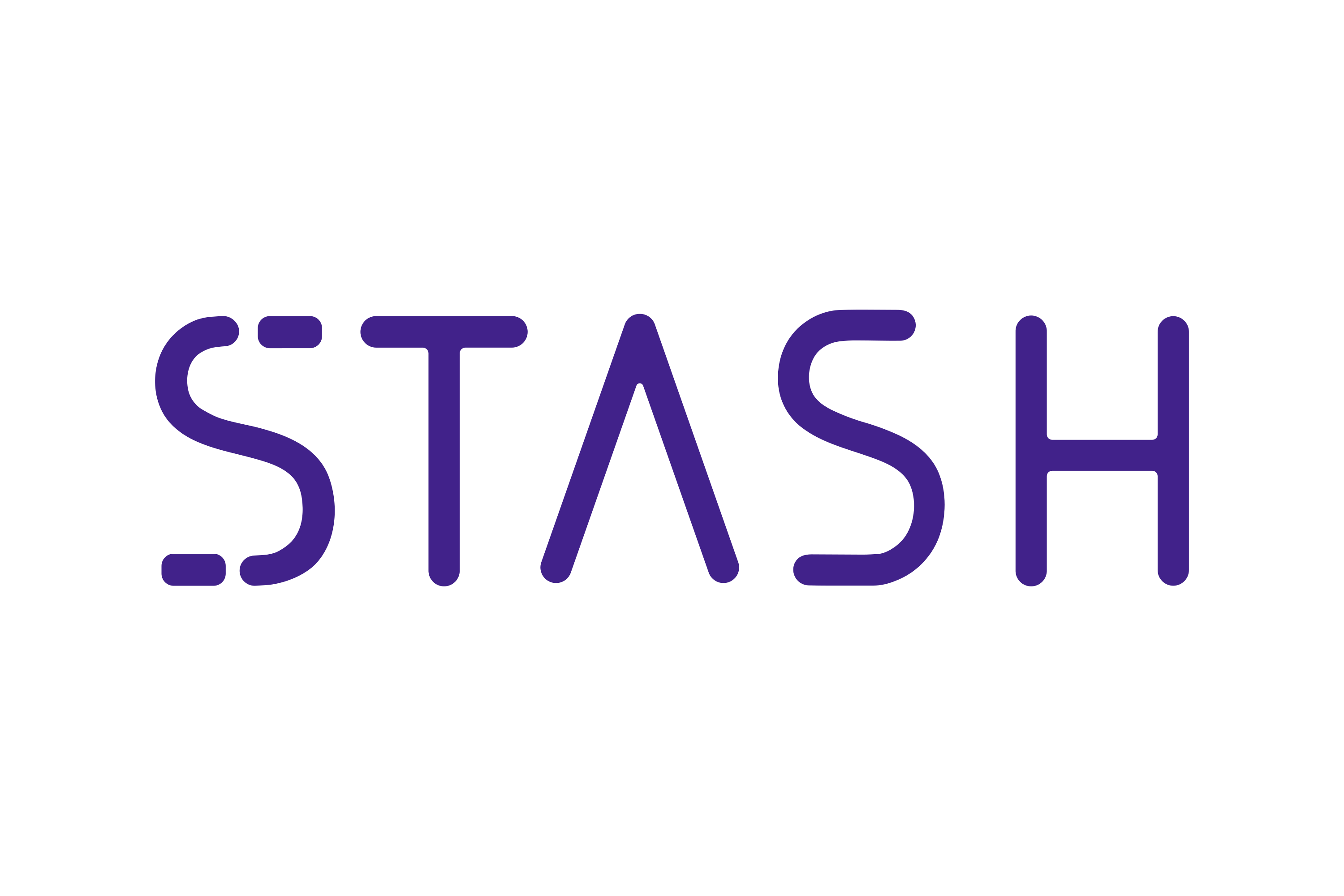Saving money has never been easy, and some would say modern technology has made it even harder.
Where consumers once had to go out of their way to buy clothing and household supplies or even splurge for something fun, technology has made it so you can shop on your phone and have anything you want delivered to your doorstep.
But technology can also be used for good, and that’s especially true when it comes to our finances. With money-saving apps, for example, you can set up your finances in a way that helps you save small sums of money that are set aside and even invested on your behalf.
Don’t get money-saving apps confused with budgeting apps. Where budgeting apps like You Need a Budget (YNAB.com) and Qube Money help you manage your finances and create a spending plan, money-saving apps actually help you save more money each month, although often in different ways.
We profiled the top money-saving apps to find the best options that are made to work for the broadest range of consumers.
Acorns came out on top in our ranking due to its ease of use and the fact it makes saving and investing money seamless. However, the additional apps that made our ranking are worth considering if you want to boost your savings goals this year.
The Most Important Factors for Money Saving Apps
- Cost: You should never pay an arm and a leg for an app that is supposed to help you save money. For the purpose of this ranking, we looked for money-saving apps that charge small, manageable monthly fees.
- Growth Potential: When you’re saving money each month, you want that money to grow. Consider money-saving apps that make it possible to invest your savings or grow it over time with a generous promised return.
- Flexibility: Consumers should look for apps that can be tailored to their needs, or at least ones that let them set up their preferences. Mobile apps that aim to help you save should make it easy to set specific savings goals or even separate savings “buckets.”
- Safety: Before you sign up for a money saving app, check for security features like encryption and multi-factor authentication.
The Best Money Saving Apps
Table of Contents
The top money-saving apps have something for everyone without charging exorbitant fees. We compared more than 10 mobile apps that were created to help consumers save money to come up with our list of favorites.
If you’re hoping to boost your savings this year and think technology might help, this is the perfect place to start your search:
Before you choose a mobile app that is geared to help you boost your savings, you should understand how it will work as well as the long-term costs. Our app reviews can help you decide which money saving app makes the most sense for your goals and your budget.
Acorns: Best for Investing
What We Love About Acorns: Acorns earned the top spot in our ranking for a few reasons. First, this app lets you invest using your spare change, which makes it easy to save small sums of money you may not even notice. Second, all three plans you can sign up for — Lite, Personal, and Family — include an investing component that makes it easy to grow the money you set aside, and even save for retirement.
The “Personal” version of Acorns is the most robust version for individuals. This plan includes all-in-one investment assistance, help with retirement, a checking component, a metal debit card and more. You can also save money with no account fees and reimbursed ATM fees, and you can earn more with up to 10% in bonus investments.
Further, this app gives you the chance to invest automatically with built-in retirement options, and you can tailor your plan to your retirement and investing goals. Generally speaking, an Acorns portfolio is typically made up of exchange-traded funds (ETFs) ranging from conservative to aggressive.
What Holds it Back: The stock market doesn’t guarantee positive returns — especially in the short-term. In other words, you could wind up losing money if you only invest for a short amount of time.
Reviews: 4.5 out of 5 stars on Google Play
Cost: $1 per month for a Lite plan, $3 per month for a Personal plan, and $5 per month for a Family plan
Simple: Best for High-Yield Savings
What We Love About Simple: Simple is a mobile app that offers savings tools that work in conjunction with a free checking account and a special debit card. This app lets you set up notifications that inform you each time a transaction is made, and you can use it to set financial goals, manage your expenses, and set aside “Safe to Spend” funds for whatever you want.
Simple also lets you round up your debit transactions to the nearest dollar and then transfer the difference into a high-yield Protected Goals subaccount with a 1.00% APY.
One major benefit of Simple is the fact that it’s normally free to use. Fees you may have to pay include $5 for paper checks, out-of-network ATM fees, and foreign transaction fees if you use your debit card abroad.
What Holds it Back: Simple doesn’t offer the same robust investing options as Acorns and some other apps that made our ranking.
Reviews: 4 out of 5 stars on Google Play
Cost: Using the app to manage your money is free
Qapital: Best for Setting Goals
What We Love About Qapital: Qapital is another money-saving app you can use to reach your savings goals and invest in the future. This app lets you automate your savings and round your purchases up to the next dollar.
You’ll receive a debit card that is free to use for purchases and transfers, but you’ll have to pay a fee to use an ATM. You can use the app to create separate savings buckets for various goals, and you can even set up your own spending rules.
Qapital also has its own pre-built portfolios that can make investing easy. All you need to do is choose an investing timeline (such as how many years you have until retirement), and the app will automatically choose a portfolio that is diverse and tailored to the amount of time you have to keep your money invested.
What Holds it Back: Qapital is considerably more expensive than many other apps that are geared to helping you save money. The savings account component also comes with an unimpressive APY.
Reviews: 4.1 out of 5 stars on Google Play
Cost: A Basic plan is $3 per month, a Complete plan is $6 per month, and a Master Plan is $12 per month
Digit: Best Savings Bonus
What We Love About Digit: Digit is another app that was created to help you save money automatically. According to the app creators, Digit “analyzes your spending and automatically saves the perfect amount every day, so you don’t have to think about it.” The money you save is then transferred to a Digit savings account. You can also set up separate savings buckets, which can be geared to specific goals you have like a vacation fund, a debt payoff fund, college savings, or something else.
We also like the fact that Digit offers a .5% annual savings bonus that is paid out every three months. This bonus helps incentivize users to save even more over time. Finally, don’t forget that Digit offers a 30-day free trial, which makes it easy to try it out before you make a commitment.
What Holds it Back: Digit is not really geared to consumers who want to invest for the long-term. This is a true money-saving app that is focused on helping you save money instead.
Reviews: 4.6 out of 5 stars on Google Play
Cost: Digit is free for 30 days, then $5 per month
Stash: Best for Automation
What We Love About Stash: Stash is an investing app that also comes with a savings component. This makes it a good option for people who want to start setting aside small sums of money that they invest to reach their long-term financial goals.
Stash lets you invest your savings in your choice of thousands of stocks and funds. You can also invest using fractional shares, which let you get started with a relatively low balance in your account.
The savings component of the app, called Auto-Stash, also makes it easy to automate your savings. You can set up automatic transfers from your bank account to your Stash account, and you can also round up purchases to the nearest dollar and automatically invest that money as well.
What Holds it Back: At $9 per month, Stash can be expensive if you pay for their most generous plan.
Reviews: 4.0 out of 5 stars on Google Play
Cost: Stash is only $1 per month for a Beginner plan, $3 per month for a Growth plan, and $9 per month for a Stash+ plan
How We Found the Best Money Saving Apps
The best money saving apps are geared to helping you save more money than you might otherwise, usually through automation. To find the apps for our ranking, we considered the following criteria:
- Monthly Cost: We looked for money apps that offer low monthly fees ($5 or less per month), with the exception of comprehensive plans that offer a major investing component. Ongoing cost is important since apps that aim to help you save money shouldn’t cost an arm and a leg over the long-term.
- Automation Features: Saving money automatically is the best way to grow long-term wealth. With that in mind, we looked for apps that have an automation component, either by allowing automatic transfers to your account, a feature that rounds up all of your purchases, or both.
- Safety Features: We looked for money-saving apps that offer 256-bit encryption or better. We also looked for secondary safety features like multi-factor authentication and notifications.
- Reviews: Finally, we compared all the apps on this list in terms of their user reviews. Each app that made our ranking has a minimum ranking of 4 out of 5 stars on Google Play.
How to Make the Most of Your Money Saving App
Downloading a money saving app is an excellent first step toward building a better financial future, but you’ll need to do more than that if you want to boost your savings rate and stay safe in the process. Before you commit to any of the apps we’ve profiled in our ranking, consider these tips that could help you get the most out of the experience.
- Take advantage of special security features. All of the apps that made our ranking offer industry-standard encryption protection. However, if your app offers additional safety features like multi-factor authentication, you should take the time to set this up.
With Stash, for example, you have the option to add biometric recognition using a fingerprint to access your account. - Utilize automation to its fullest potential. Make sure you’re making the most of automation features, whether they include the option to round up all of your purchases or the chance to set up automatic transfers to your account. Remember that automating your savings is the best way to have your money grow automatically, and that you should strive to “set it and forget it” as much as you can.
- Get your spouse or partner involved. Saving money on your own can be fruitful, but you have the chance to double the impact if you get your spouse or partner on board.
Some money-saving apps like Acorns offer a Family plan, which makes it easy for you and a partner to get on the same page when it comes to your goals. - Invest your money for the long haul. Some of the apps we profiled focus mostly on helping build a savings account, but others like Acorns and Stash help you invest for the long run. If your goal is saving for retirement or other long-term financial goals, you’ll want to focus on options that let you invest your money into stocks, ETFs, or portfolios that are tailored to your investment timeline and appetite for risk.
- Leave your savings alone: While there’s nothing wrong with setting up savings buckets for vacations, a kitchen remodel, or another short-term goal, money-saving apps can also help you save for retirement and other long-term financial needs.
You should really commit to leaving some of the money you save alone to grow over time. That way, your savings will be there when you need it.

Summary: Best Money Saving Apps
| Money Saving App | What It’s Best For |
|---|---|
| Acorns | Investing |
| Simple | High-Yield Savings |
| Qapital | Setting Goals |
| Digit | Savings Bonus Potential |
| Stash | Automation |
Bottom Line: Top Money-Saving Apps
In today’s tech-driven world, saving money has become more challenging, but innovative apps are here to help. These money-saving apps offer distinct benefits to cater to various financial goals.
Acorns top the list, effortlessly investing spare change and offering personalized plans for growth. Simple provides a checking account with high-yield savings tools, making financial management a breeze.
Qapital’s automated savings and customizable goals empower users to achieve their aspirations. Digit’s automatic analysis and bonus incentives simplify saving, while Stash combines investment and savings options.
Cost-effectiveness, growth potential, flexibility, and security are key factors when selecting an app. By utilizing advanced security features, embracing automation, involving partners, and focusing on long-term investing, users can maximize their money-saving app experience.
These apps present opportunities to build a brighter financial future, offering tailored solutions to a wide range of consumers’ needs.












